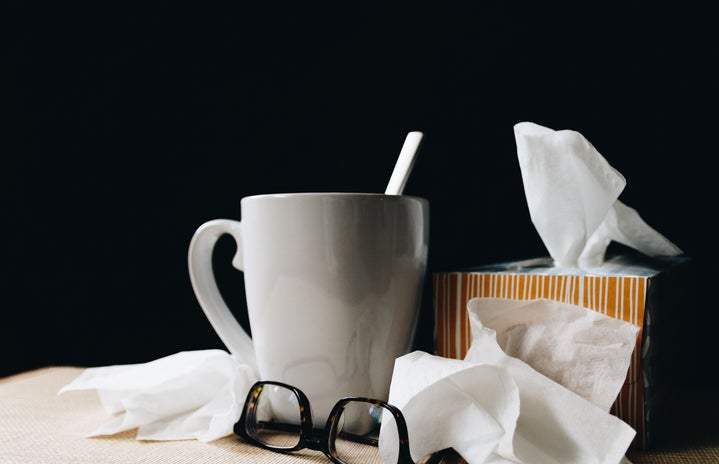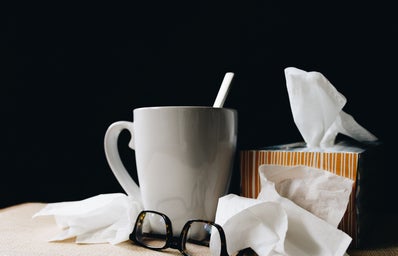It was a frigid winter night when I was hit with a throbbing headache and a wave of dizziness. That day, I had been scurrying between classes on campus, forgoing breakfast, lunch, and dinner. Also, I only wore a pea coat as protection against the cold. Not good. And in hindsight, my poor decision-making that day led to my untimely demise. Or rather the disappearance of my immune system. Maybe it bruised my ego admittedly too. Let me tell you why.
I come from a family that only stocks organic food religiously in the fridge and pantry. My sister and I grew up essentially being force-fed buckwheat by morning and forbidden rice at night. That’s a bit of an exaggeration, but you get the picture. We were almost never medicated, not even when we got the flu (which we rarely caught compared to other kids our age). Rather, we were put to bed with soups, tablets of Vitamin C, and elderberry immune syrup. Even now, when I swallow supplements and herbs, I immediately feel better. It could be the placebo effect, deceiving me with false hope and promises, but nothing could have prepared me for the ordeal I experienced last week.
After I returned to my dorm from classes that same night, my slightly aching muscles became more acute in pain, my face became hot, and my room was spinning. I collapsed in a heap on my bed, curled up in agony and despair for my condition. Both my dad and sister almost never fall sick, whereas I usually fall sick two to three times a year. This comparison has always stuck in my head, and has made me — the child with the sickly constitution — develop a need to prove to others that I have good immunity and that I’m well, even when I’m actually not.
My thoughts spiraled toward the worst possibilities. Why did I have to fall sick now? Right at the beginning of the school year? Especially when the coronavirus may have just arrived in New York City? What if I had the coronavirus?
The new coronavirus, which originates in Wuhan, China, has generated a lot of public alarm due to its unpredictability. It doesn’t help that the mortality rate of this seemingly deadly disease is estimated to be ten times higher than the seasonal flu. Now, many individuals, including those breathing and walking on our campus, blame Chinese people for spreading the virus. They’ll say things like “Not to be racist but, I try to avoid Asians since I don’t want to catch the coronavirus”. This is the coronavirus paranoia. Where the thought of being sick with an unknown virus and potentially facing death has people on a witch hunt for Asians to pin as scapegoats. It is blatant racism steeped in a palpable Western fear that World War III and the apocalypse are coming soon.
My week of being sick was punctuated with posts from Columbia Confessions, anonymous students taking to social media to discuss their worries about the new coronavirus, and conversations with my roommate (who was also incidentally sick) about how we both may just die. On campus, I have also overheard assumptions that the coronavirus has been able to spread because there are no food or health regulations in China (e.g. bat soup). The viral video of a woman eating a bat in a bowl with chopsticks, which was previously assumed to have been filmed in China, was actually filmed on a Pacific island called Palau. People erroneously assume that the coronavirus is caused by the ingestion of bats, which is considered a delicacy in some parts of China. However, the verdict is still out on the virus’s precise origins.
As I recover and begin to feel better, I also reflect on how I can better handle news about illnesses like the coronavirus and even my own sickness. As a writer, I am always seeking to stay well-informed about various issues concerning social justice, politics, and the environment. Why can’t I do the same with issues about wellness or health? If not for myself, then I can at least do so for my campus community, which remains fractured over a multitude of issues, including the seemingly inevitable arrival of the coronavirus. And please use my own tale of sickness and woe as a lesson: if you feel sick and get flu-like symptoms, please do yourself a favor and see a doctor because you never know what virus you may be harboring.


